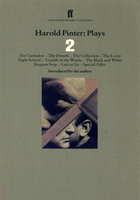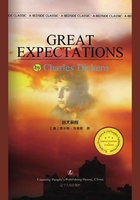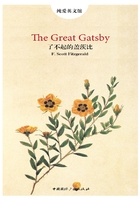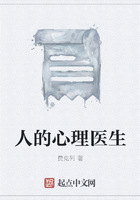For two days after that Rostov did not see Dolokhov at his own or at Dolokhov's home: on the third day he received a note from him:
As I do not intend to be at your house again for reasons you know of, and am going to rejoin my regiment, I am giving a farewell supper tonight to my friends- come to the English Hotel.
About ten o'clock Rostov went to the English Hotel straight from the theater, where he had been with his family and Denisov. He was at once shown to the best room, which Dolokhov had taken for that evening. Some twenty men were gathered round a table at which Dolokhov sat between two candles. On the table was a pile of gold and paper money, and he was keeping the bank. Rostov had not seen him since his proposal and Sonya's refusal and felt uncomfortable at the thought of how they would meet.
Dolokhov's clear, cold glance met Rostov as soon as he entered the door, as though he had long expected him.
"It's a long time since we met," he said. "Thanks for coming. I'll just finish dealing, and then Ilyushka will come with his chorus."
"I called once or twice at your house," said Rostov, reddening.
Dolokhov made no reply.
"You may punt," he said.
Rostov recalled at that moment a strange conversation he had once had with Dolokhov. "None but fools trust to luck in play," Dolokhov had then said.
"Or are you afraid to play with me?" Dolokhov now asked as if guessing Rostov's thought.
Beneath his smile Rostov saw in him the mood he had shown at the Club dinner and at other times, when as if tired of everyday life he had felt a need to escape from it by some strange, and usually cruel, action.
Rostov felt ill at ease. He tried, but failed, to find some joke with which to reply to Dolokhov's words. But before he had thought of anything, Dolokhov, looking straight in his face, said slowly and deliberately so that everyone could hear:
"Do you remember we had a talk about cards… 'He's a fool who trusts to luck, one should make certain,' and I want to try."
"To try his luck or the certainty?" Rostov asked himself.
"Well, you'd better not play," Dolokhov added, and springing a new pack of cards said: "Bank, gentlemen!"
Moving the money forward he prepared to deal. Rostov sat down by his side and at first did not play. Dolokhov kept glancing at him.
"Why don't you play?" he asked.
And strange to say Nicholas felt that he could not help taking up a card, putting a small stake on it, and beginning to play.
"I have no money with me," he said.
"I'll trust you."
Rostov staked five rubles on a card and lost, staked again, and again lost. Dolokhov "killed," that is, beat, ten cards of Rostov's running.
"Gentlemen," said Dolokhov after he had dealt for some time. "Please place your money on the cards or I may get muddled in the reckoning."
One of the players said he hoped he might be trusted.
"Yes, you might, but I am afraid of getting the accounts mixed. So I ask you to put the money on your cards," replied Dolokhov. "Don't stint yourself, we'll settle afterwards," he added, turning to Rostov.
The game continued; a waiter kept handing round champagne.
All Rostov's cards were beaten and he had eight hundred rubles scored up against him. He wrote "800 rubles" on a card, but while the waiter filled his glass he changed his mind and altered it to his usual stake of twenty rubles.
"Leave it," said Dolokhov, though he did not seem to be even looking at Rostov, "you'll win it back all the sooner. I lose to the others but win from you. Or are you afraid of me?" he asked again.
Rostov submitted. He let the eight hundred remain and laid down a seven of hearts with a torn corner, which he had picked up from the floor. He well remembered that seven afterwards. He laid down the seven of hearts, on which with a broken bit of chalk he had written "800 rubles" in clear upright figures; he emptied the glass of warm champagne that was handed him, smiled at Dolokhov's words, and with a sinking heart, waiting for a seven to turn up, gazed at Dolokhov's hands which held the pack. Much depended on Rostov's winning or losing on that seven of hearts. On the previous Sunday the old count had given his son two thousand rubles, and though he always disliked speaking of money difficulties had told Nicholas that this was all he could let him have till May, and asked him to be more economical this time. Nicholas had replied that it would be more than enough for him and that he gave his word of honor not to take anything more till the spring. Now only twelve hundred rubles was left of that money, so that this seven of hearts meant for him not only the loss of sixteen hundred rubles, but the necessity of going back on his word. With a sinking heart he watched Dolokhov's hands and thought, "Now then, make haste and let me have this card and I'll take my cap and drive home to supper with Denisov, Natasha, and Sonya, and will certainly never touch a card again." At that moment his home life, jokes with Petya, talks with Sonya, duets with Natasha, piquet with his father, and even his comfortable bed in the house on the Povarskaya rose before him with such vividness, clearness, and charm that it seemed as if it were all a lost and unappreciated bliss, long past. He could not conceive that a stupid chance, letting the seven be dealt to the right rather than to the left, might deprive him of all this happiness, newly appreciated and newly illumined, and plunge him into the depths of unknown and undefined misery. That could not be, yet he awaited with a sinking heart the movement of Dolokhov's hands. Those broad, reddish hands, with hairy wrists visible from under the shirt cuffs, laid down the pack and took up a glass and a pipe that were handed him.
"So you are not afraid to play with me?" repeated Dolokhov, and as if about to tell a good story he put down the cards, leaned back in his chair, and began deliberately with a smile:
"Yes, gentlemen, I've been told there's a rumor going about Moscow that I'm a sharper, so I advise you to be careful."
"Come now, deal!" exclaimed Rostov.
"Oh, those Moscow gossips!" said Dolokhov, and he took up the cards with a smile.
"Aah!" Rostov almost screamed lifting both hands to his head. The seven he needed was lying uppermost, the first card in the pack. He had lost more than he could pay.
"Still, don't ruin yourself!" said Dolokhov with a side glance at Rostov as he continued to deal.















